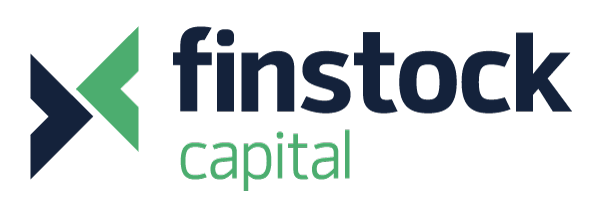Market update
Every economist in the country is currently trying to work out the impact of the current financial storm of increasing interest rates, soaring inflation and plummeting currencies as every analyst is determining the underlying impact of increased borrowing costs, consumer sentiment declines and risk free rate changes and the value of listed businesses. What, however, does all this mean to the early stage market? The answer is certainly negative but how bad? Let's try and paint this picture for you.
First, looking at the background, an economist will paint a pretty rough image - recession, inflation, declining consumer sentiment and likely future job losses. Arguably, the economist will be hoping for the latter which will reduce the threat of a wage inflation spiral. It’s a stormy, unknown image, not dissimilar to Katsushika Hokusai’s infamous ‘Great Wave’ in the Edo period.
Then moving more on to our subject matter, the company analysts will show corporates struggling to pass on an inflated cost base, increased interest costs and potentially deteriorating top line growth leading to earnings being revised lower. The subject image feels like ‘The fighting Temeraire’ but perhaps it's not that bad.
Finally, the desirability of owning company equity, relative to alternative assets. There aren't a huge amount of liquid alternatives - rising interest rates mean that government debt is not attractive unless holding to maturity, the risk premium of other alternative assets has changed significantly driven by increasing interest rates. This leads to lower valuations for equity - as, like “Napoleon Crossing the Alps” in Davide’s great painting, investors seek a higher ‘yield’ to take the extra risk of equity versus bonds.
The early stage market is perceived as the higher risk end of the spectrum for equity investors, and therefore in a rising interest rate environment, those companies which don't pay dividends and are focussed on growth have been most hurt. Compressing valuations causes significant issues for both private and public markets - ARR multiples for the BVP NASDAQ Emerging Cloud Index (the public benchmark for software performance) have fallen from 34x in 2021 to around 8x in 2022. The impact on private markets is clear - lower valuations.
This is difficult for founders who have previously raised capital in rising markets - at multiples of ARR which are significantly higher than where they can raise now. For most, that means ‘down rounds’ which can be incredibly difficult for companies to come back from.
The good news that came out of Kwasi Kwarteng’s budget were the comments on the Seed Enterprise Investment Scheme (SEIS) - from April 2023, the amount companies can raise through it will increase by two thirds from £150k to £250k and the annual investor limit will be doubled to £200k. Also, the age limit for companies accessing SEIS will increase from two to three years and the gross asset limit will be upped to £350k. Good news indeed for startups and those early stage investors. Also, the Enterprise Investment Scheme’s ‘sunset clause’ which meant that the scheme was to end in April 2025 has been extended. More good news!
We at Finstock Capital are seeing an increasing amount of enquiries from firms reluctant to dilute founders at down round valuations and therefore are seeking debt as an alternative. By now, I am sure all of our readers have seen the now infamous Sequoia presentation on extending the runway and founders are looking to see how they can get to breakeven or a significantly higher ARR without raising further equity. Debt does have a role to play here and we can support those companies where there is a catalyst for repayment.
There is no doubt that the market has shifted a huge amount - from listed technology all the way to angel investments and the repercussions of the ever changing economic environment are still yet fully to be felt. However, we would urge those founders to look at the whole market to see what the best available option is to them.
Finstock Capital news
2022 has certainly been a volatile year for more reasons than just the above. In the Finstock team itself, there have been two further babies and in the portfolio of companies we work with, there have been some notable additions.
In the world of games, we have been delighted to work with the likes of Bonsai Collaborative, Included Games and Cardboard Sword this year - some fantastic studios that are producing exciting, compelling and innovative games. In film, we would like to say a heartfelt congratulations to the team at Dartmouth Films for their latest launch which we were able to support. In theatre, it is not often that we can say we have, in some small way, supported both Paddington and Peter Rabbit with Histrionic Productions recent slate of shows in the UK.
Our R&D and venture debt facilities have been busy this year - continued delays at HMRC causing frustration and we are proud of the way that we can support some of these businesses with cash flow difficulties. The paracetamol to HMRC-induced headaches if you will.
Finally, we are delighted to add a further arm to our offering with insolvency and restructuring related finance. We have set this up with a view to supporting businesses which have good underlying business models but which have struggled to overcome some of the issues created by the current business environment.



